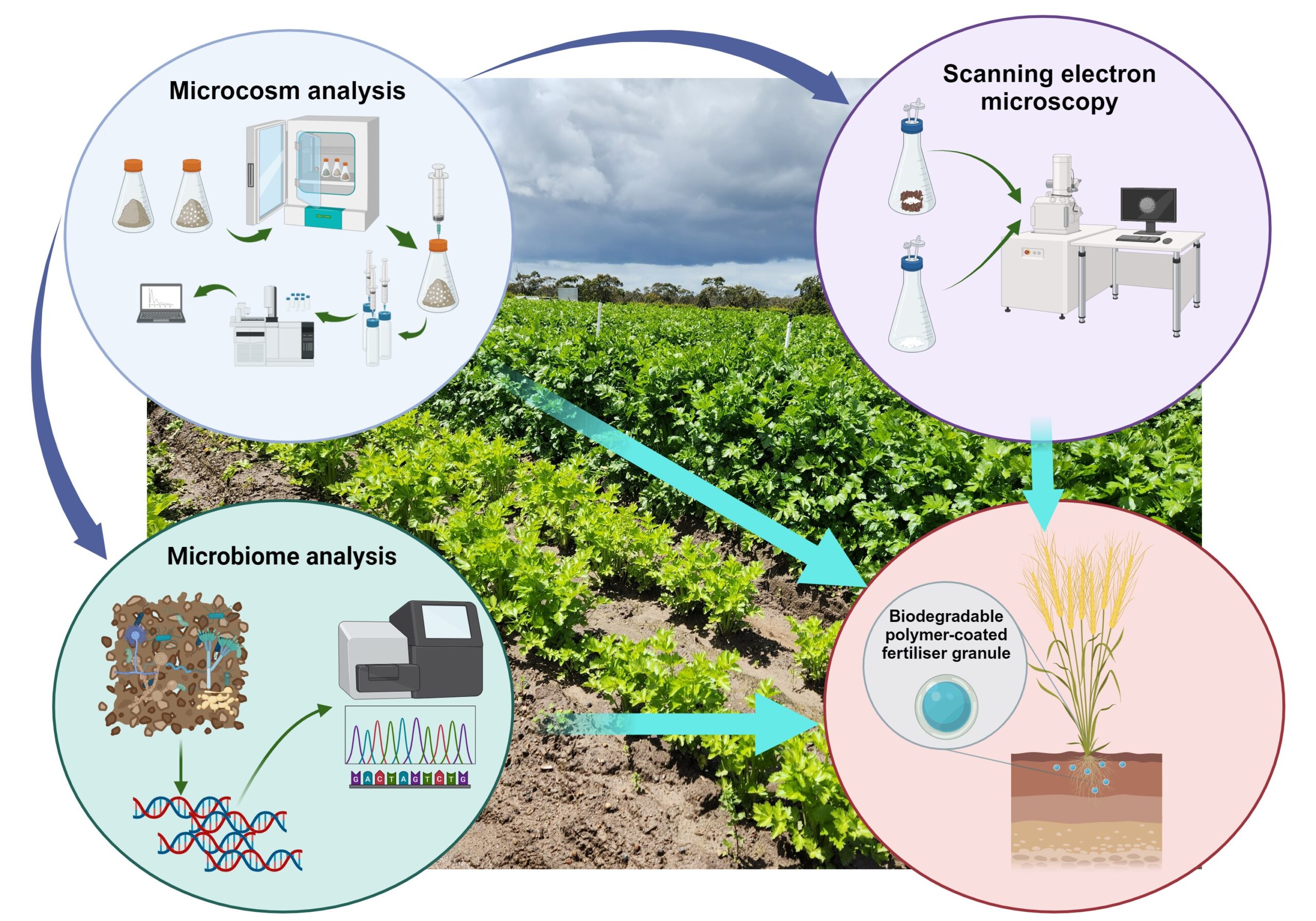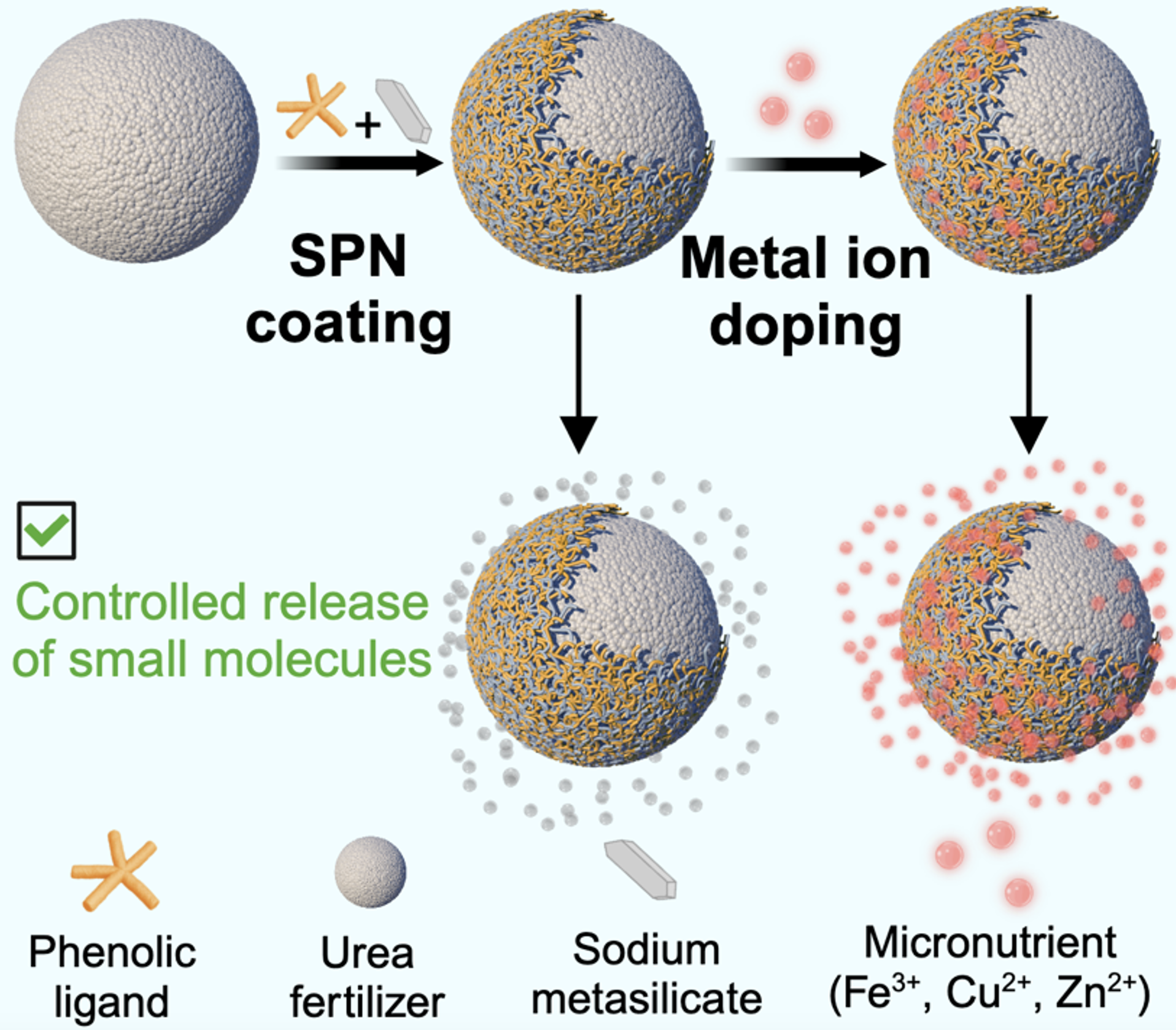Exciting, new, rapid, and inexpensive assay to accelerate novel Nitrification Inhibitor development.
Nitrogen (N) fertilisation is critical in agriculture for maximising crop yields. However, nitrogen fertilisers are broken down in the soil by microorganisms to different byproducts, which can lead to reduced availability for crops and environmental problems from these byproducts entering the waterways and atmosphere. Nitrification inhibitors (NIs) – chemical compounds used to slow the microbial conversion of ammonium N to nitrate N – are commonly used in fertiliser to reduce nitrogen loss. However, current commercial NIs are highly unreliable and there is urgency to synthesise novel and more efficient NI compounds. Current techniques to develop these compounds require time-consuming soil incubation studies as a first step to test their efficacy, which is not feasible when aiming to screen a large number of new compounds.
To address this issue, researchers at the ARC Hub for Smart Fertilisers at the University of Melbourne developed a simple and cost-efficient colorimetric assay for the rapid assessment of new NIs, enabling researchers to identify the most promising compounds for further soil studies in just one hour.
Not only does this protocol streamline the screening process, but it also offers high reproducibility, allows for the assessment of multiple compounds simultaneously and the ability to test these NIs under different pH, temperature and other variables. Furthermore, the protocol is accessible and aimed to be readily performed by individuals with rudimentary microbiology skills. The process follows the schematic overview highlighted in the figure below (Sibel et al., 2023).

This breakthrough represents a significant advancement in the development of approaches for testing new NIs. By facilitating and accelerating the testing and development of more effective and reliable NIs, this innovative approach has the potential to help optimise current nitrogen management practices and enhance sustainability in farming systems.
To read more on this research, click here.
To keep up to date on the Hub’s research, click here to sign up to the newsletter.




